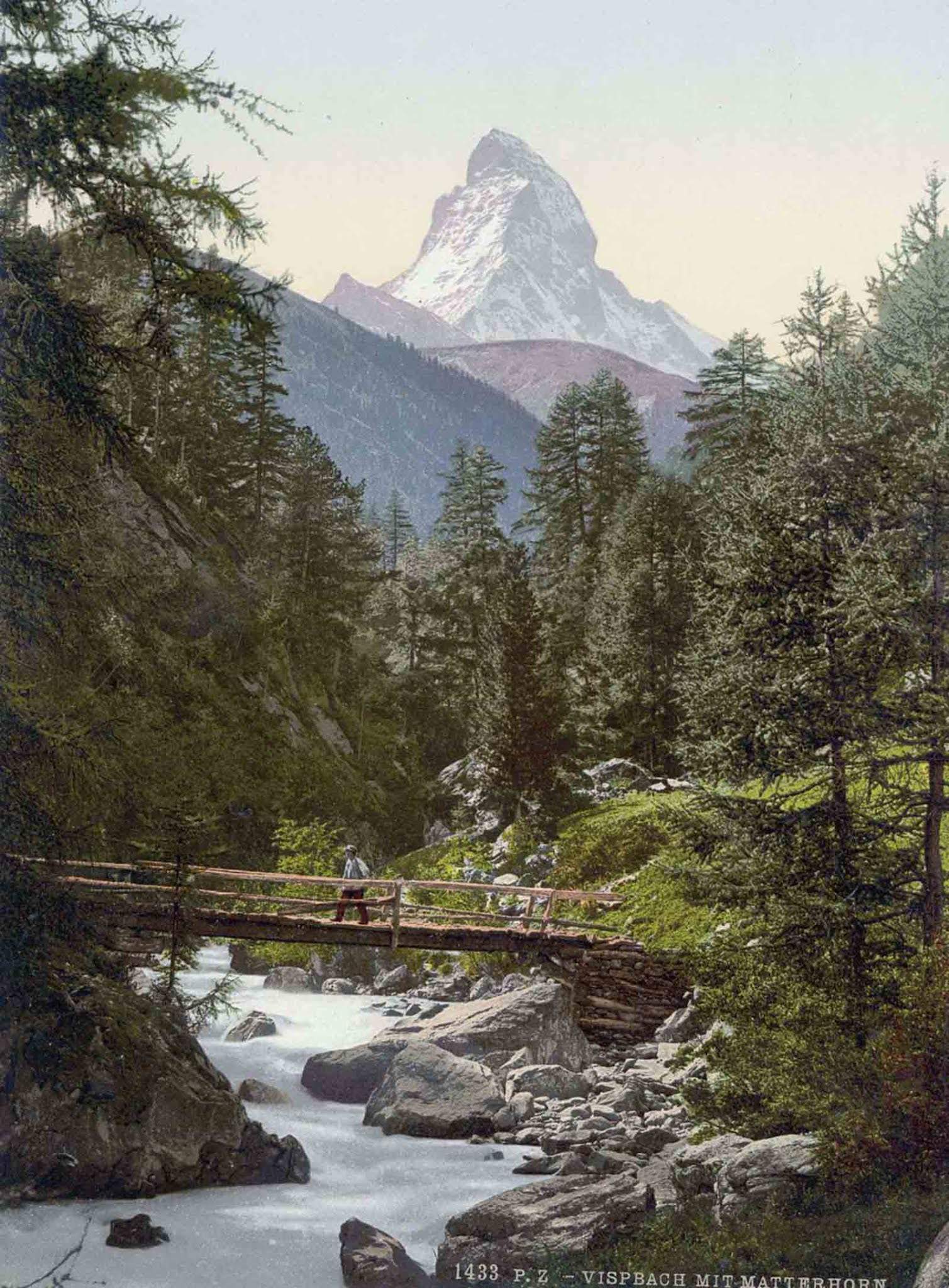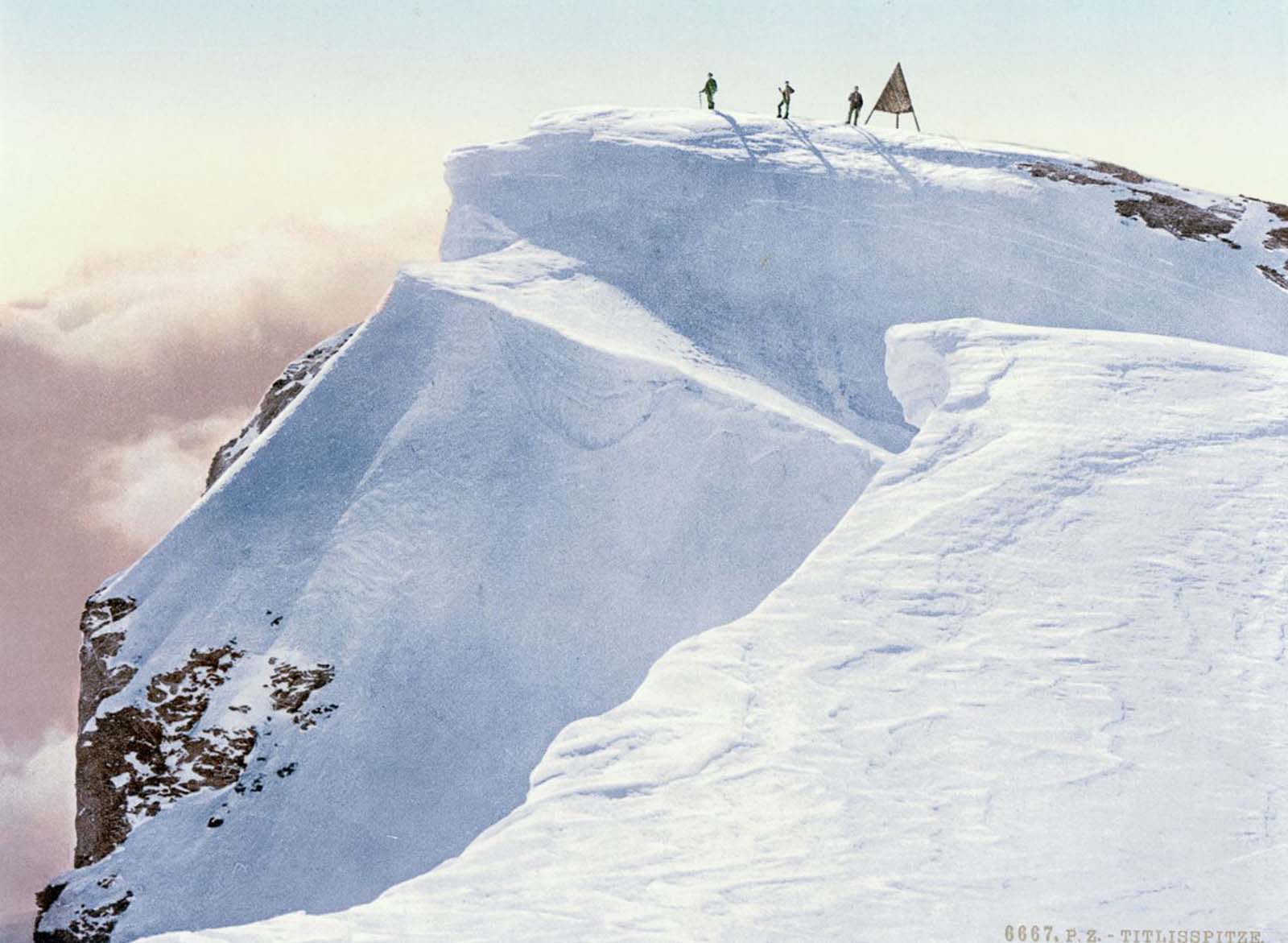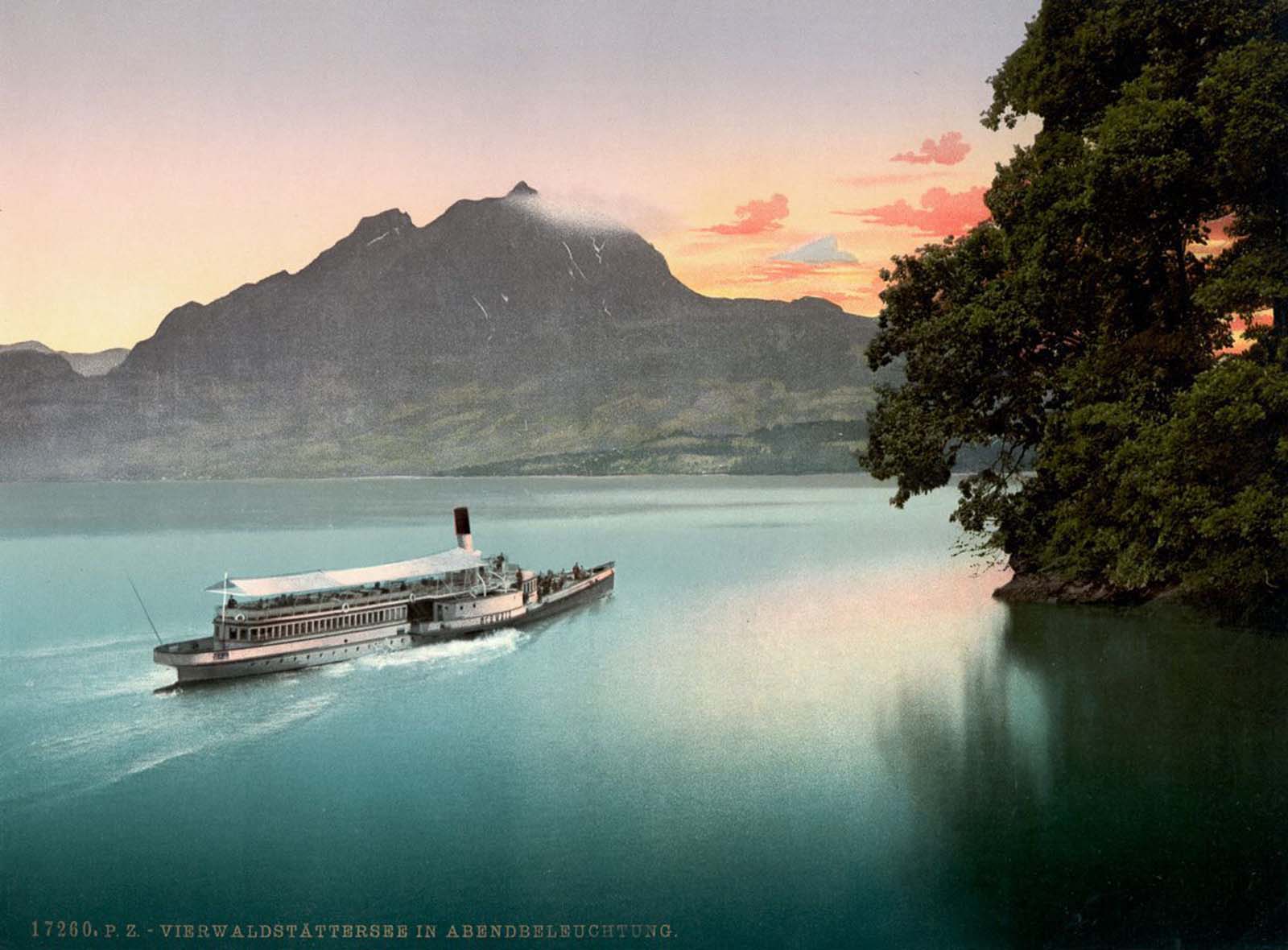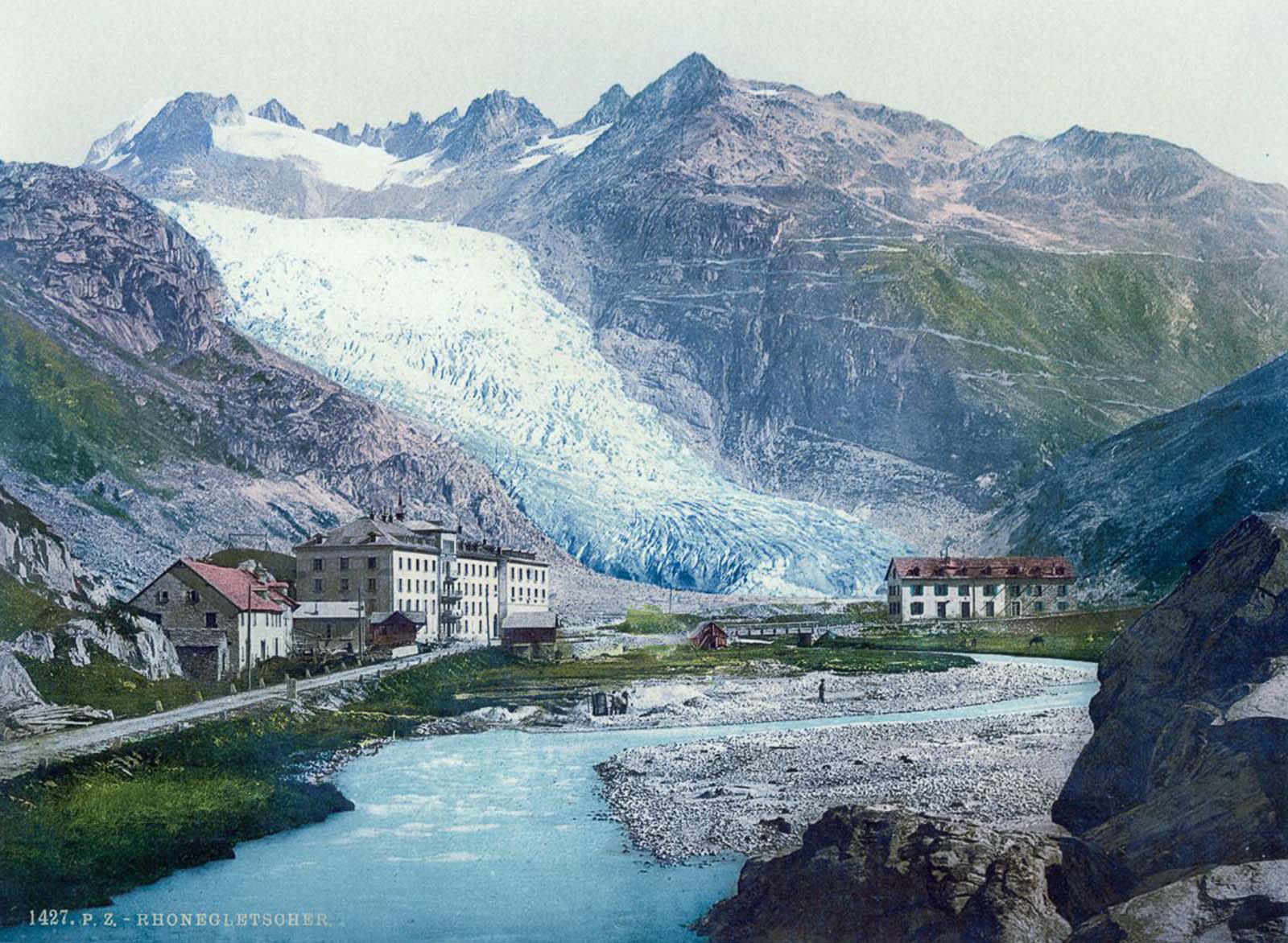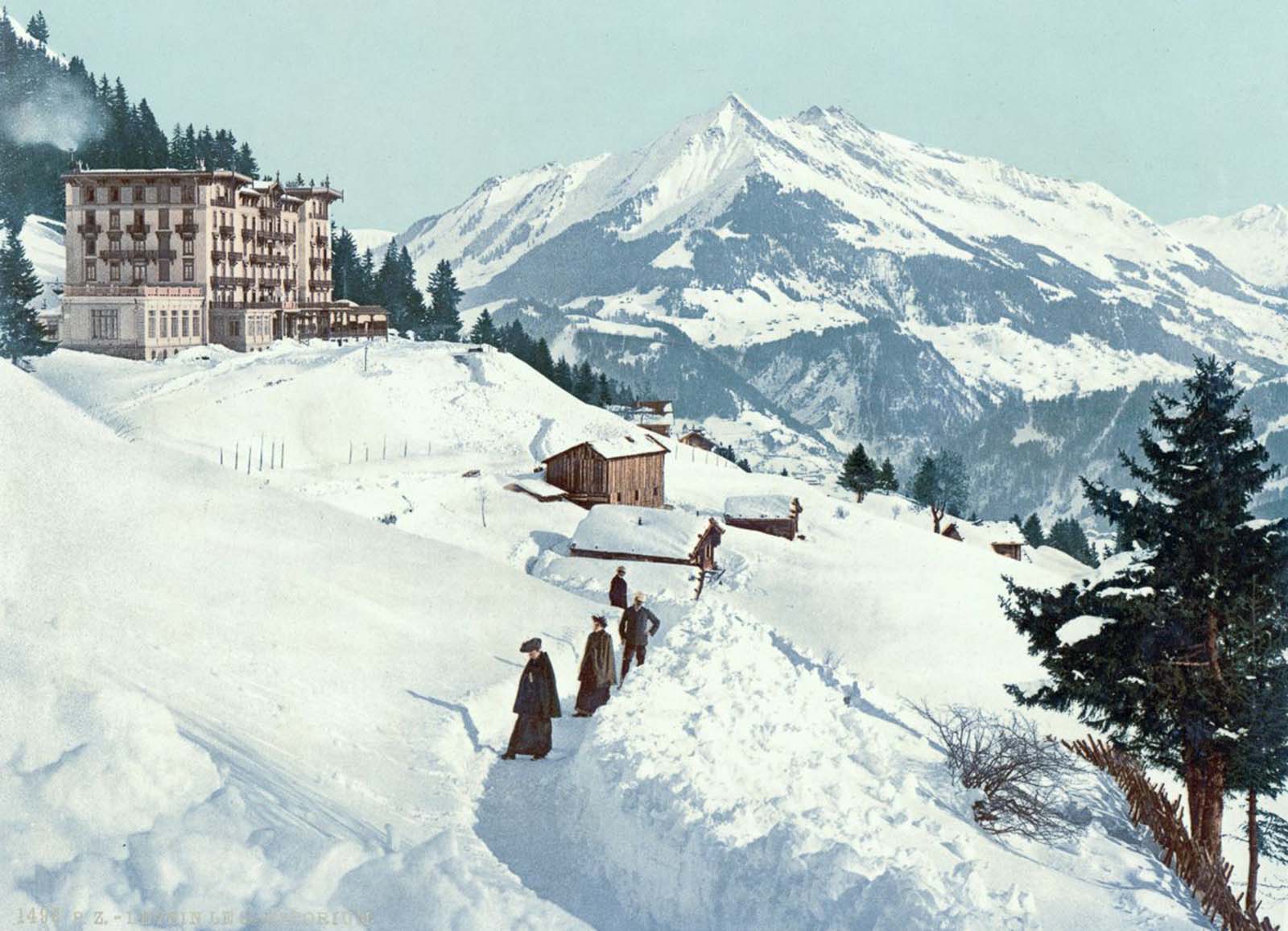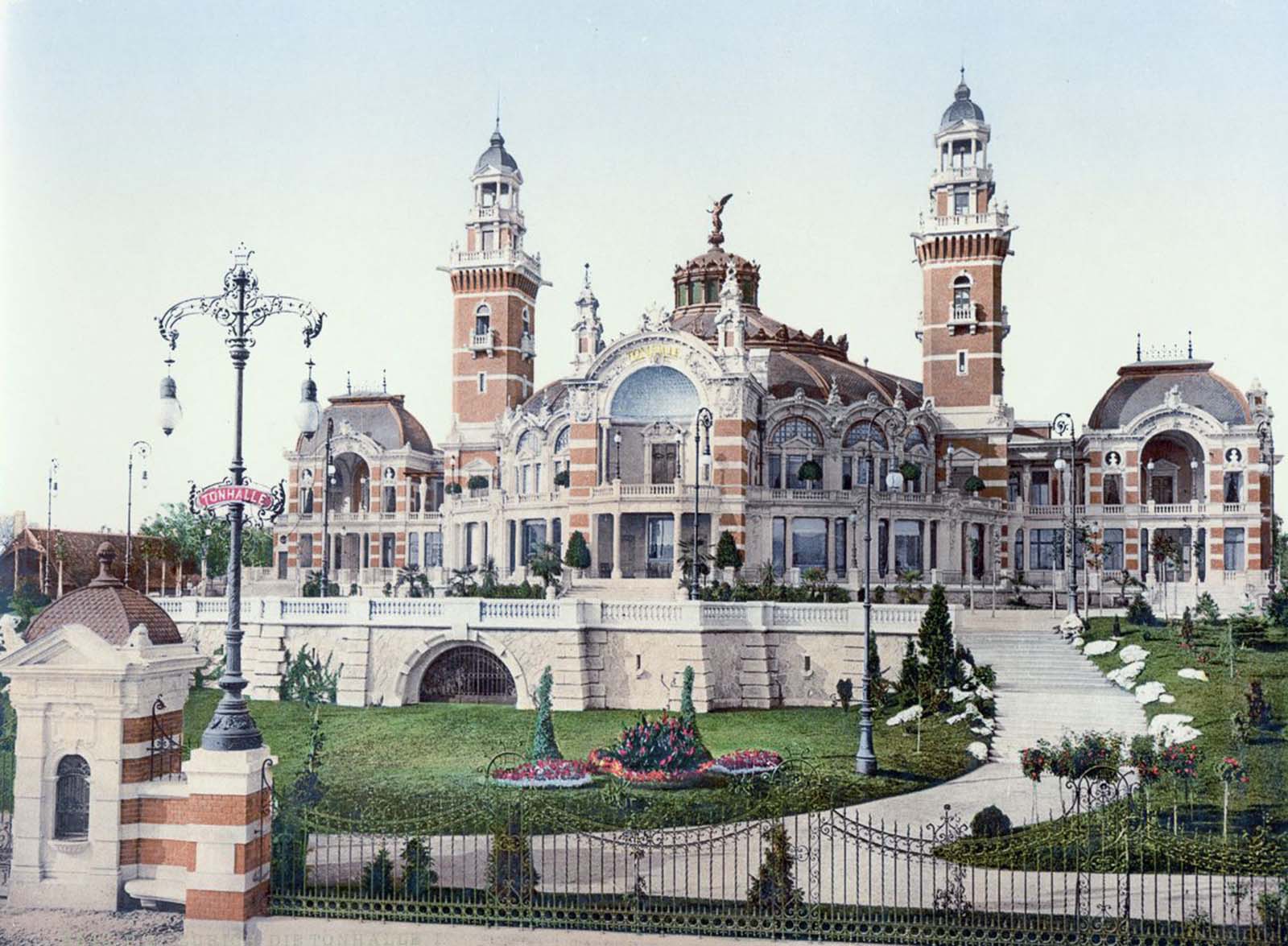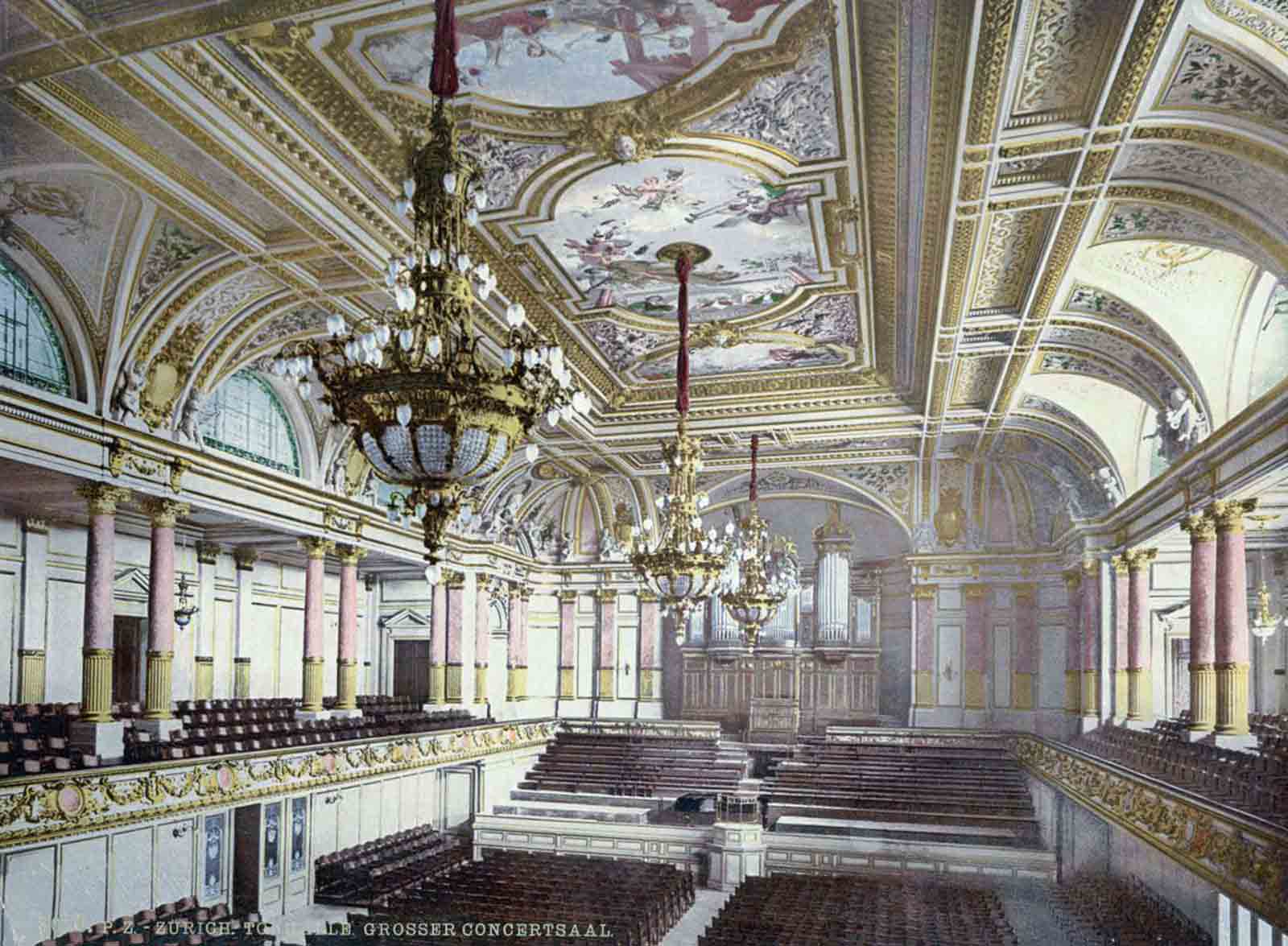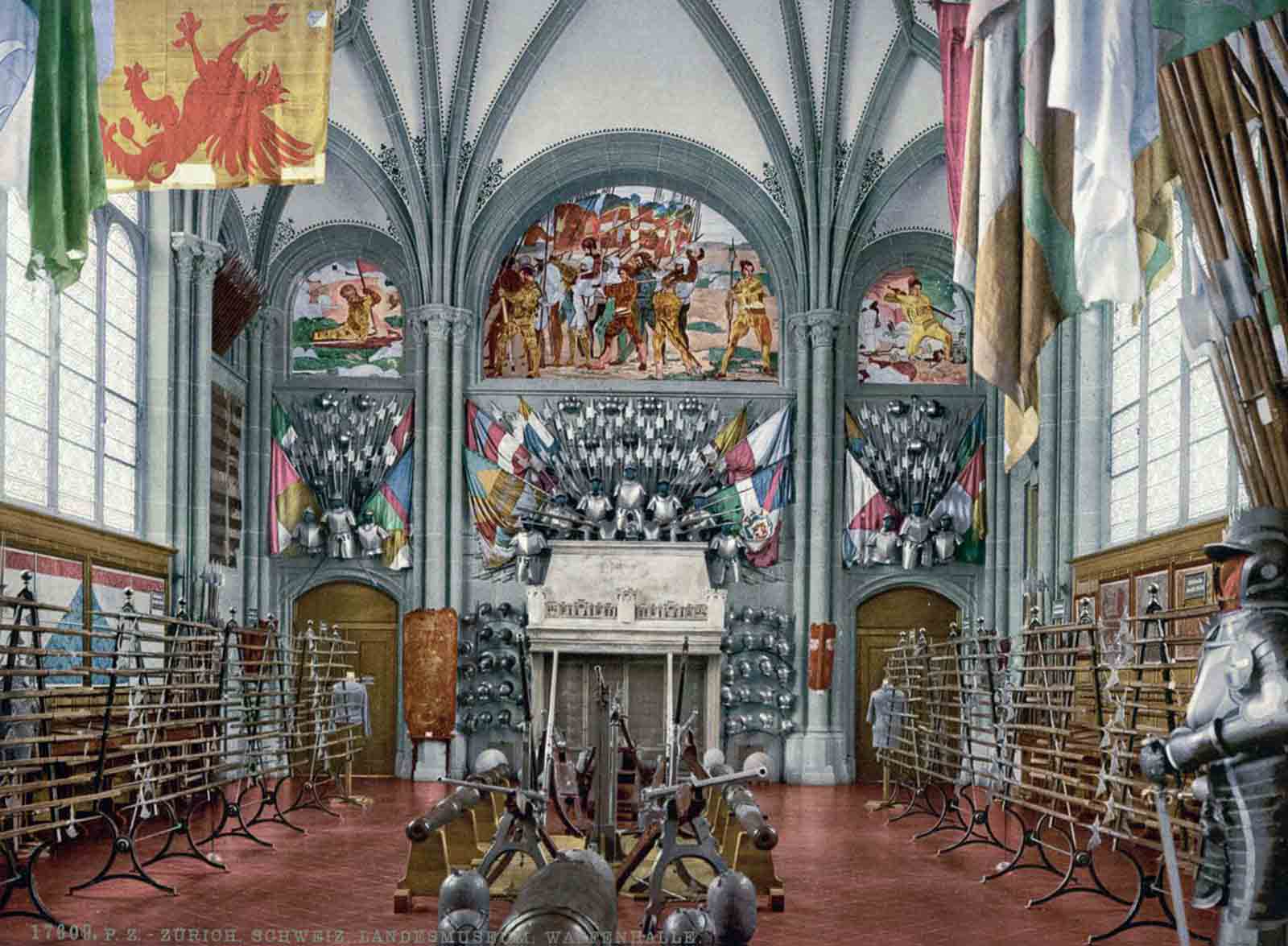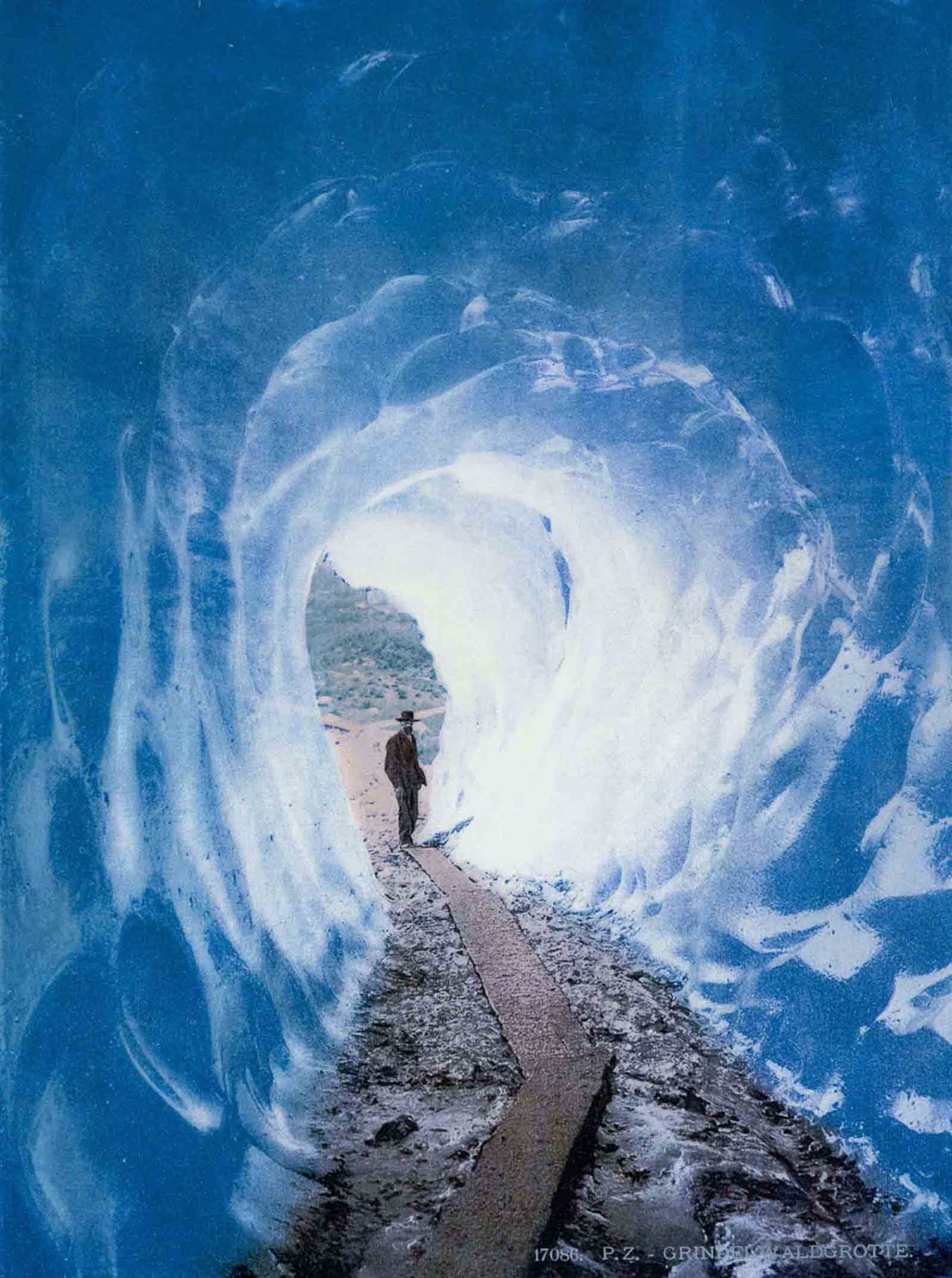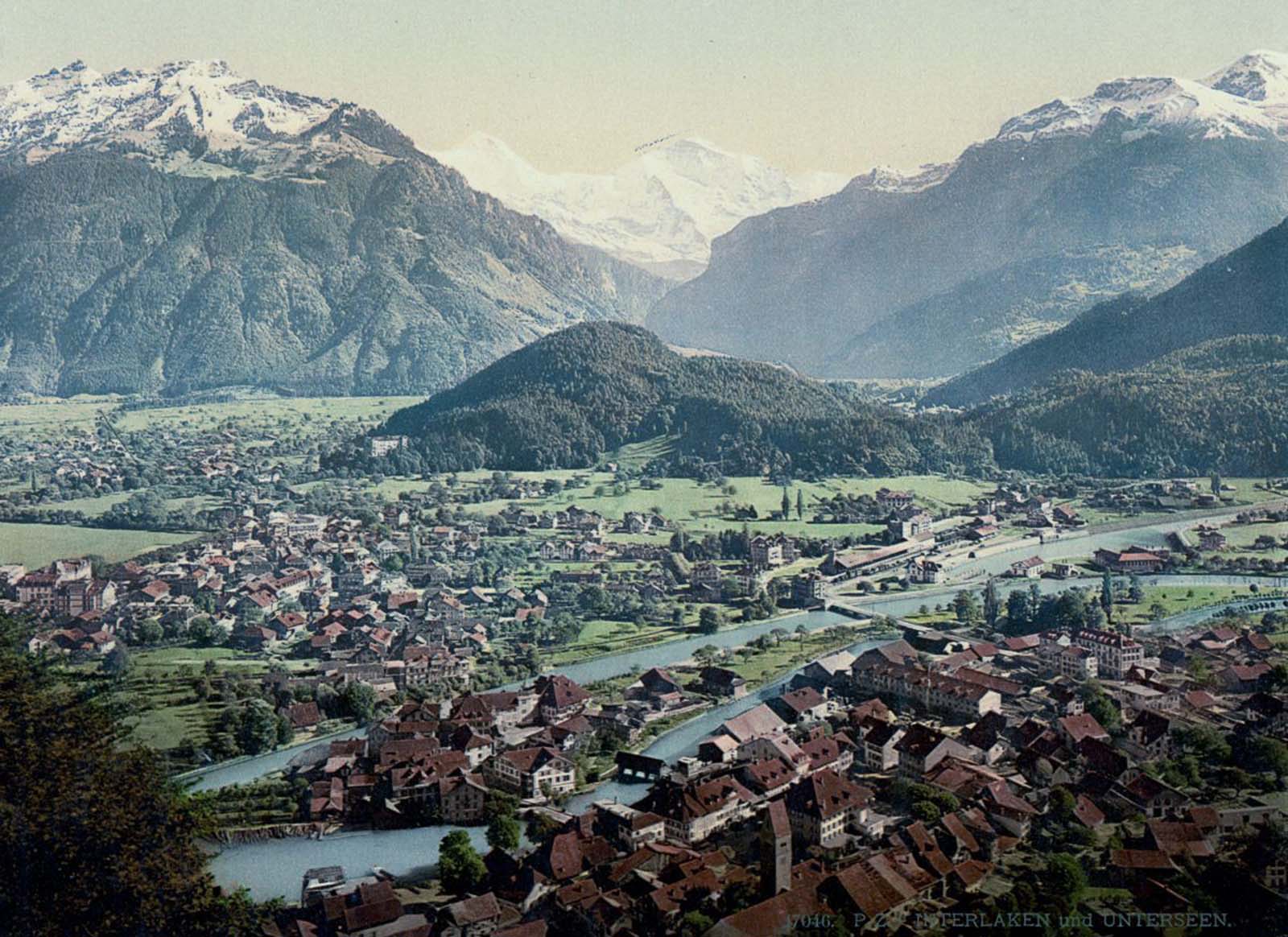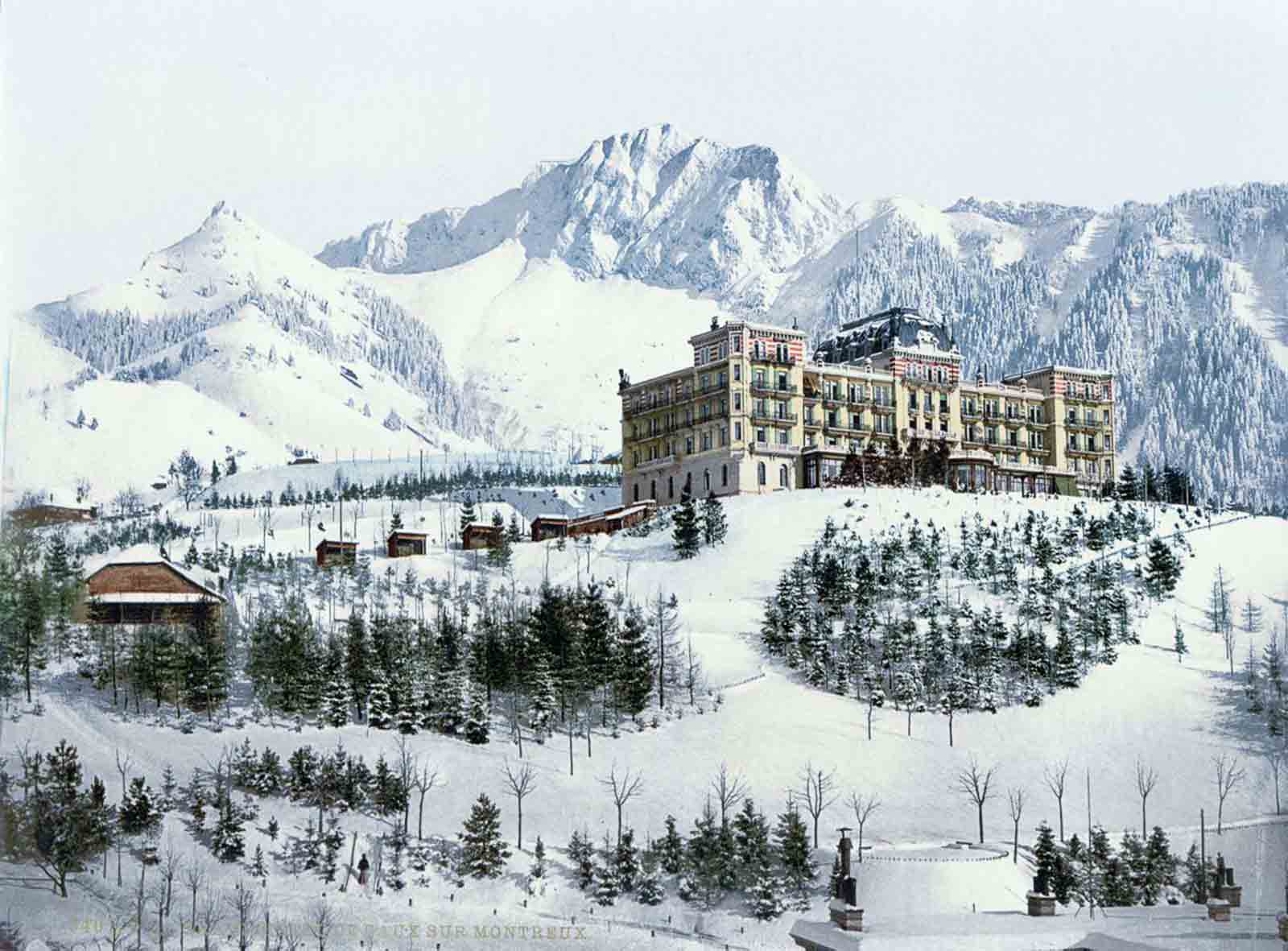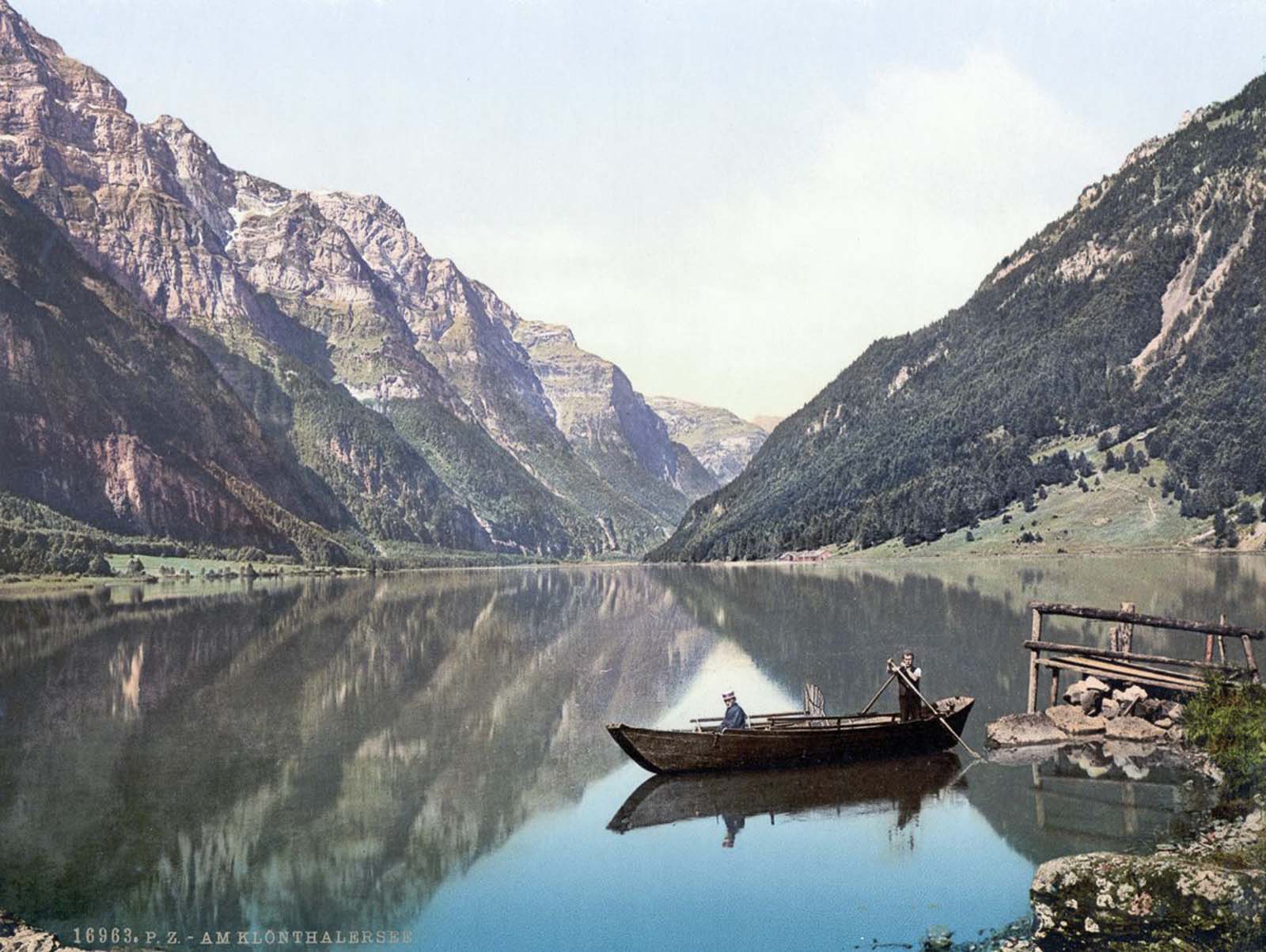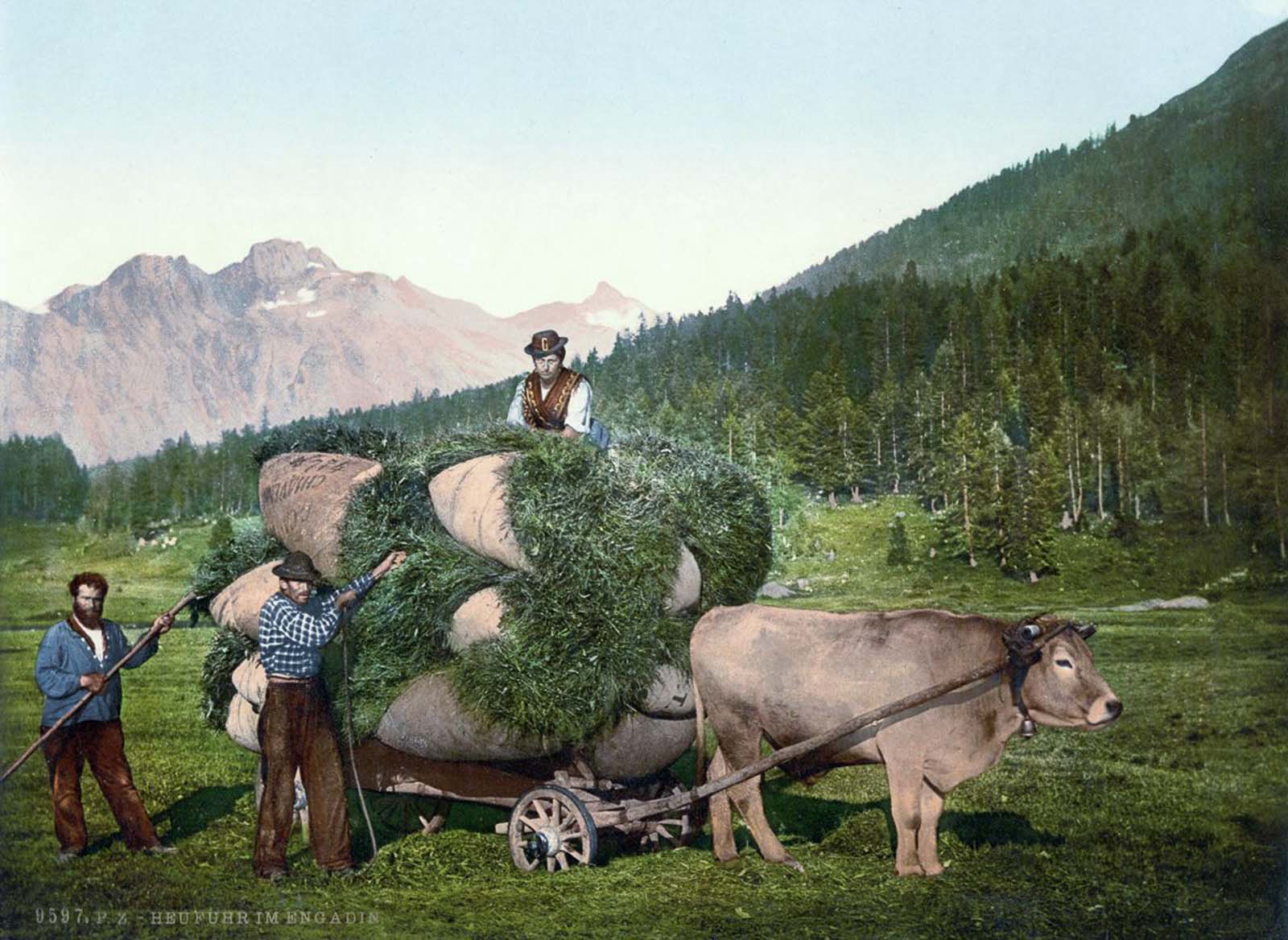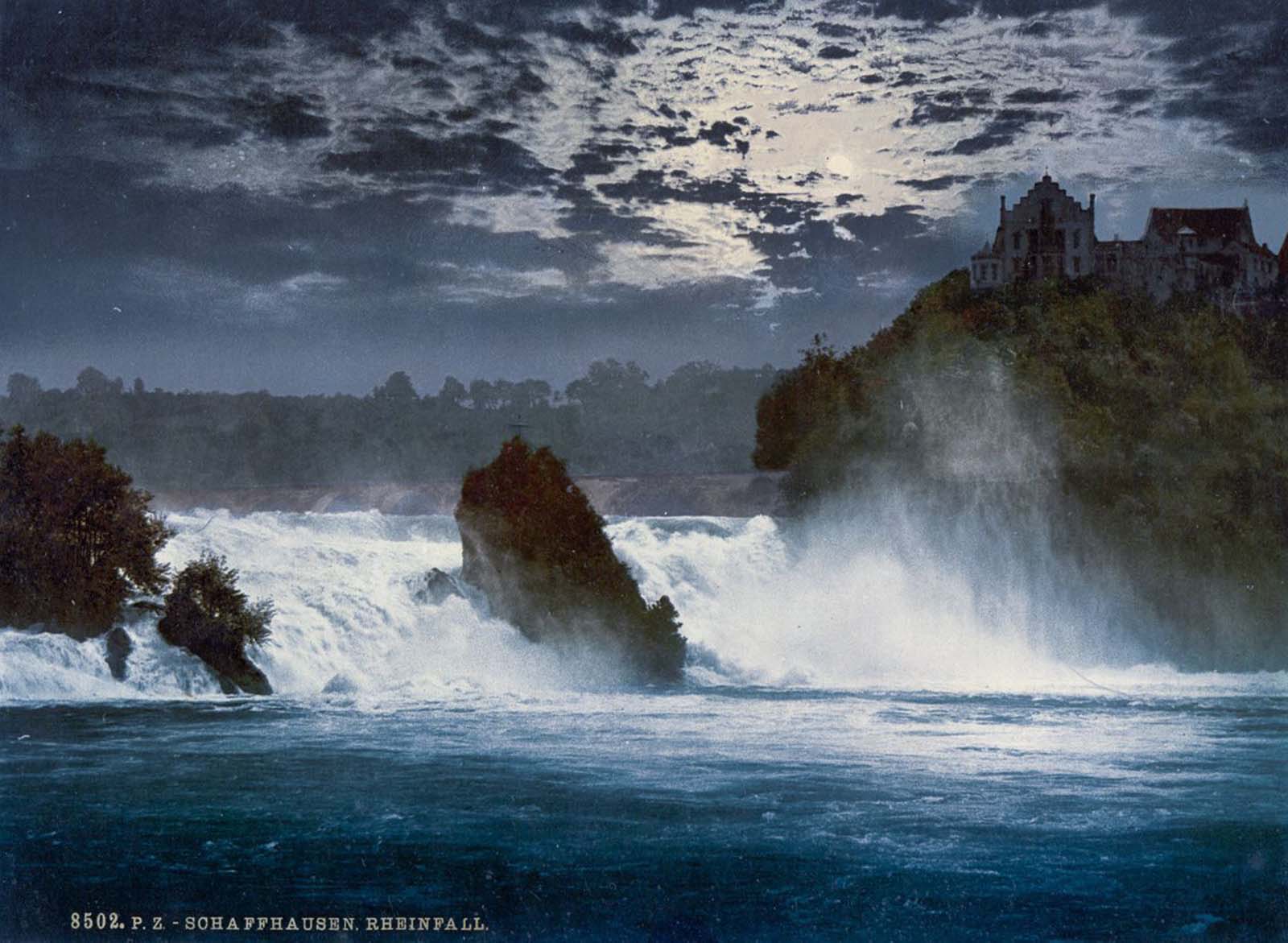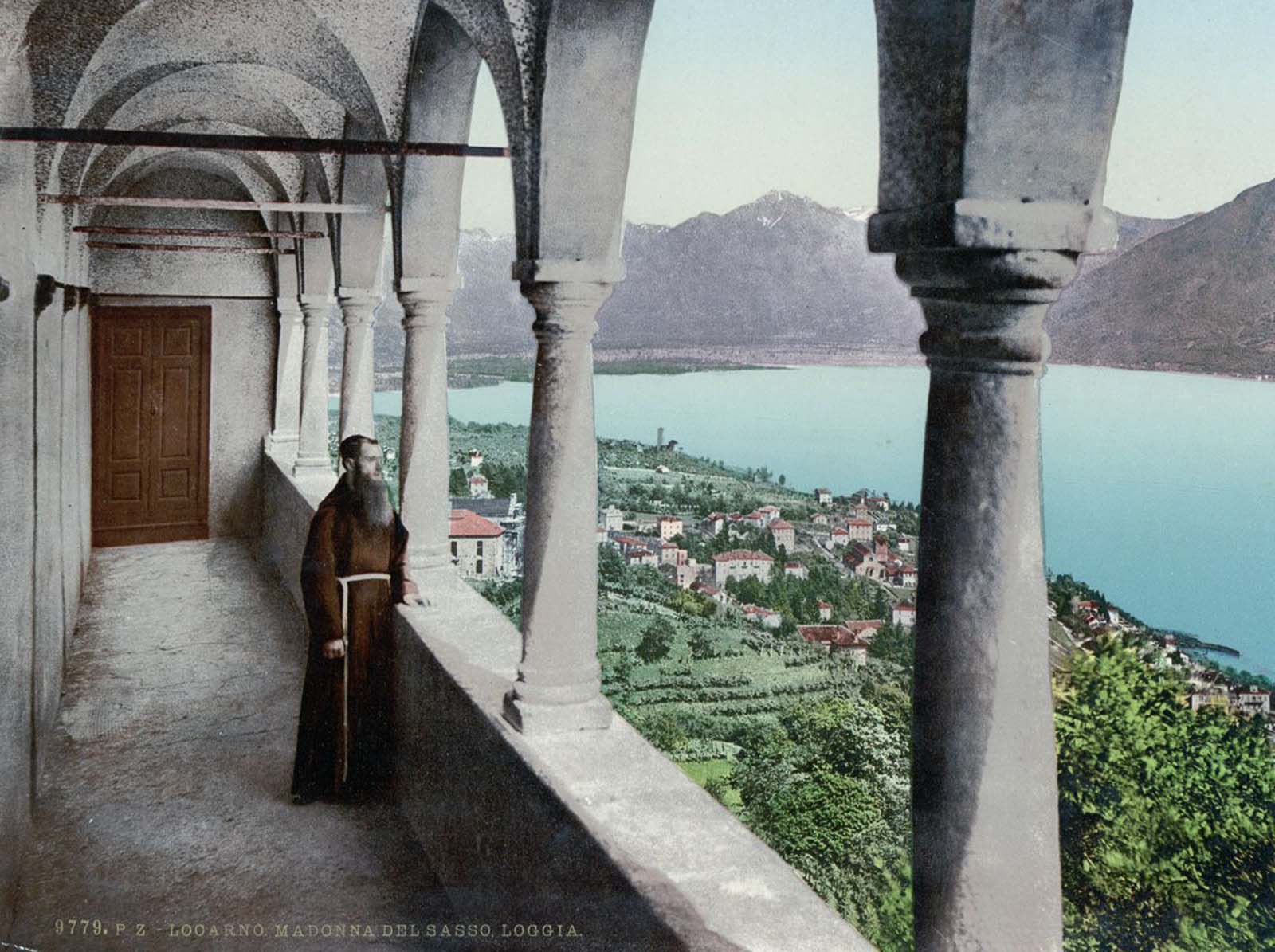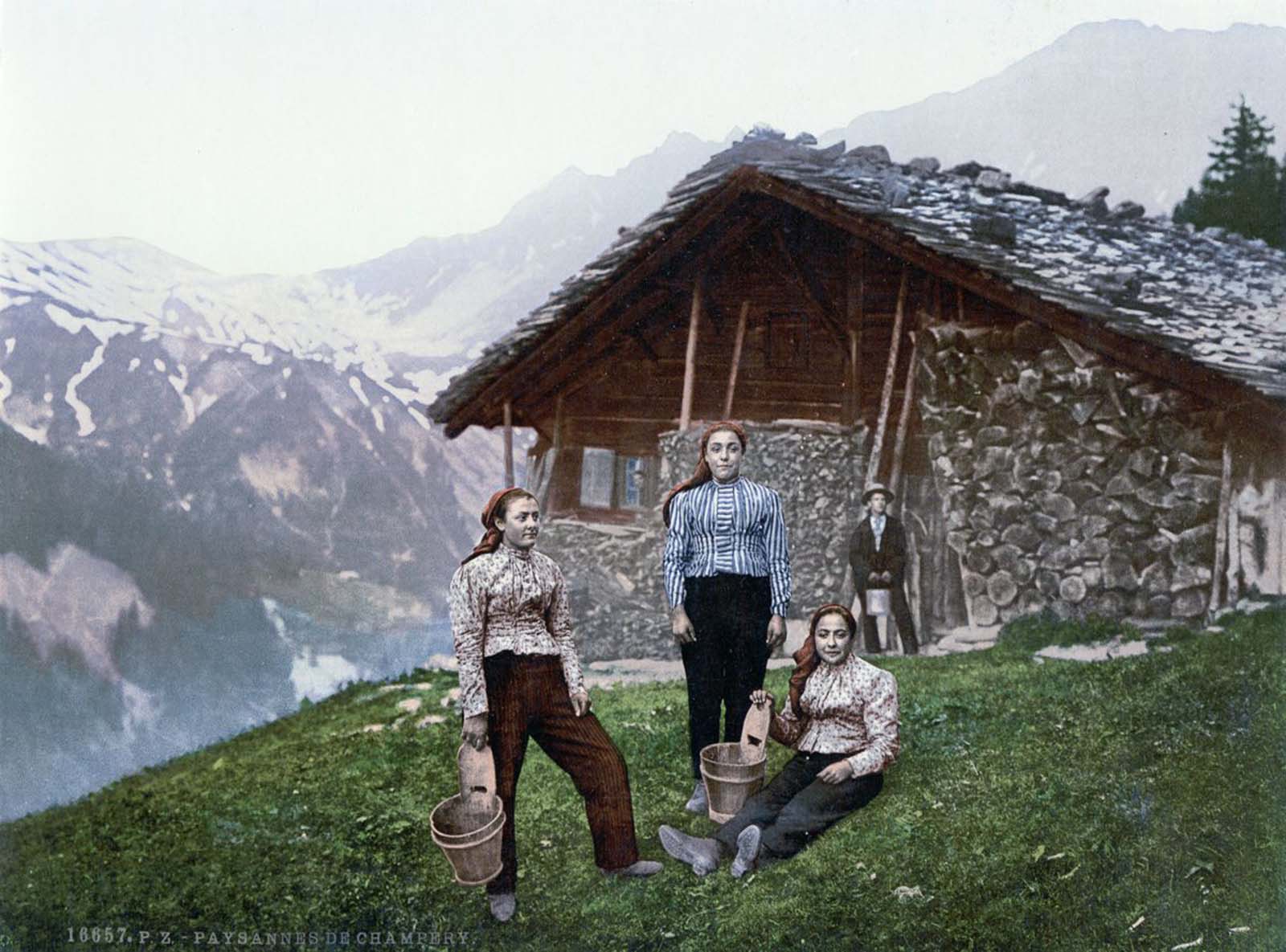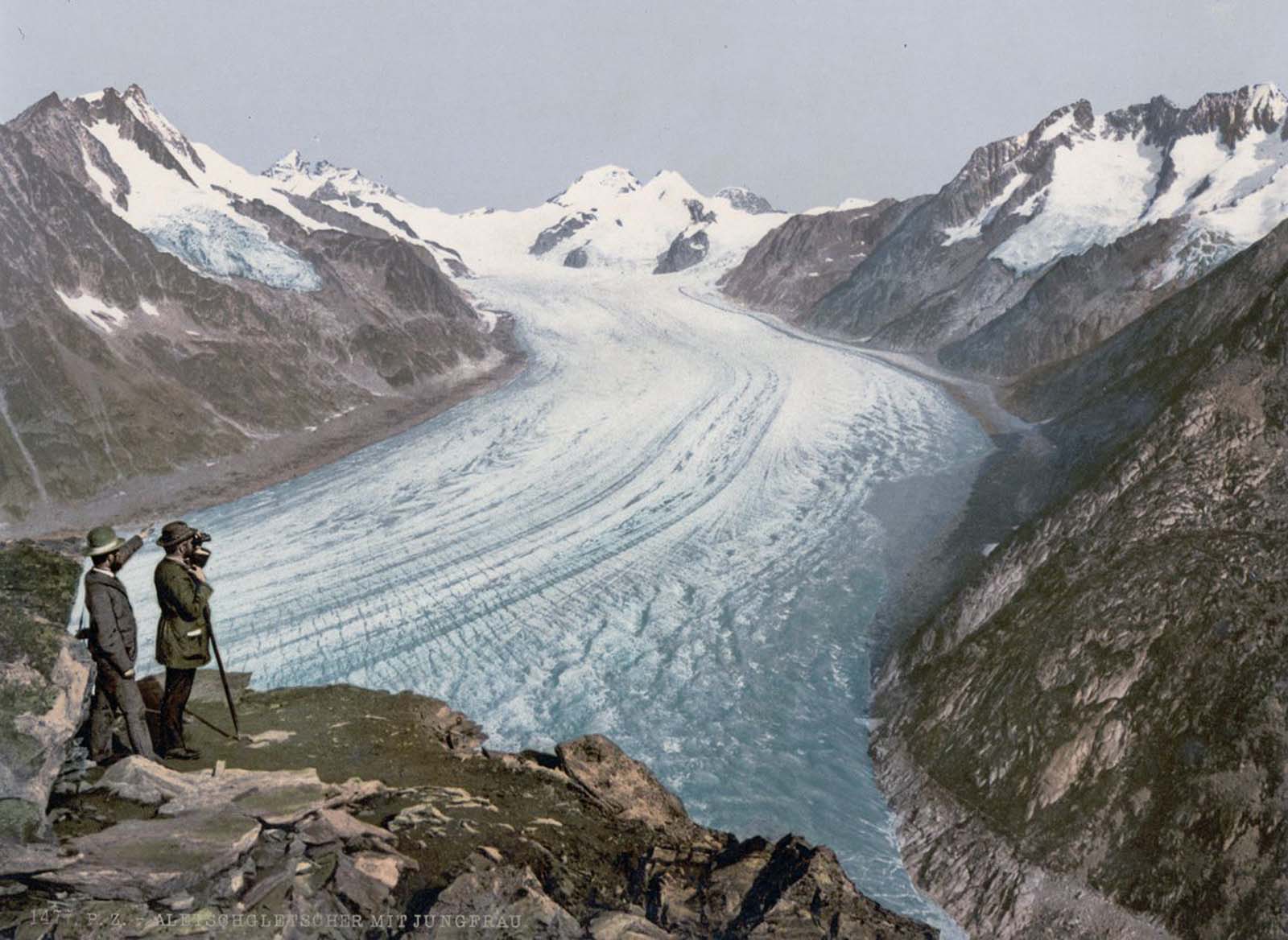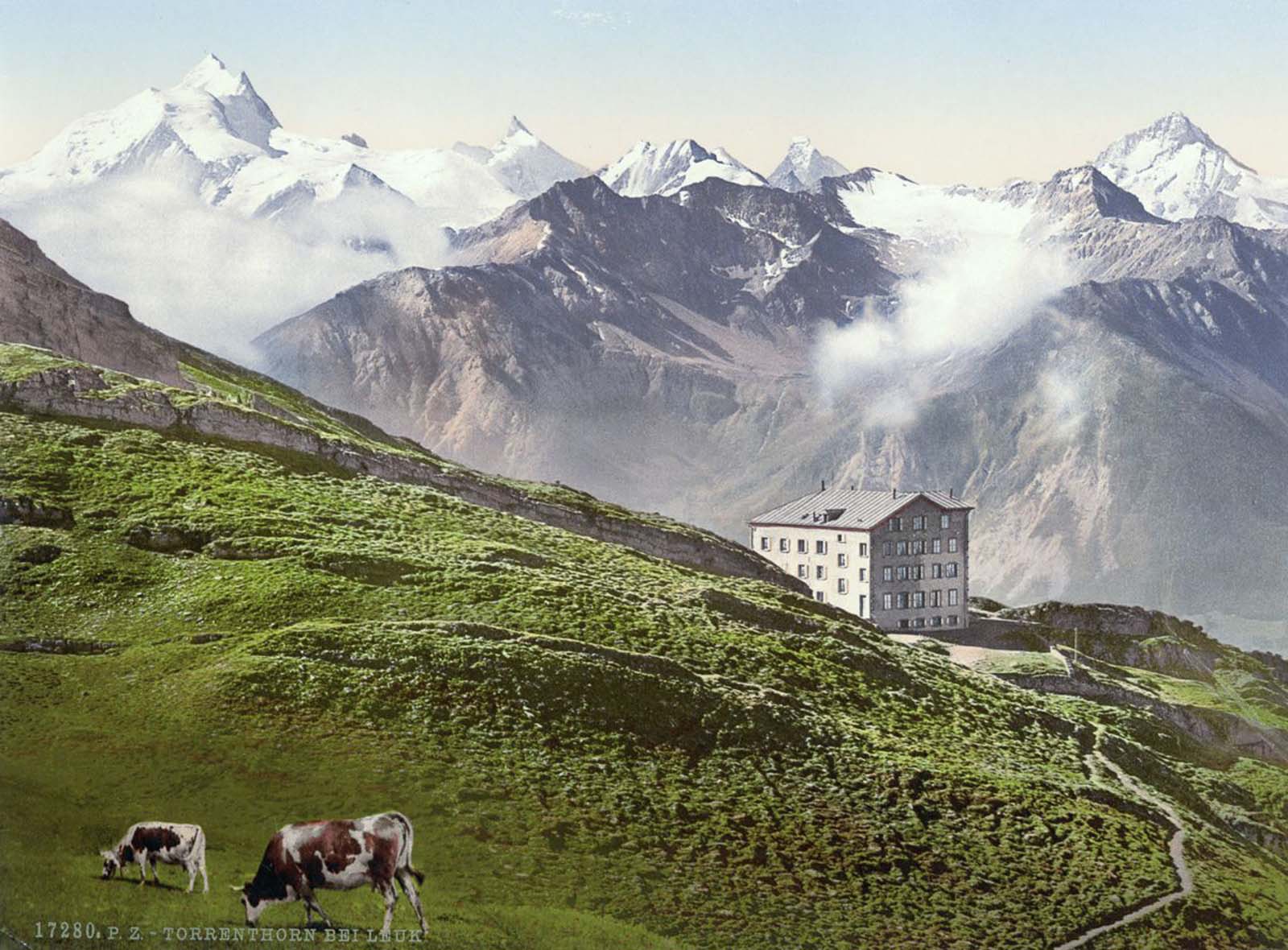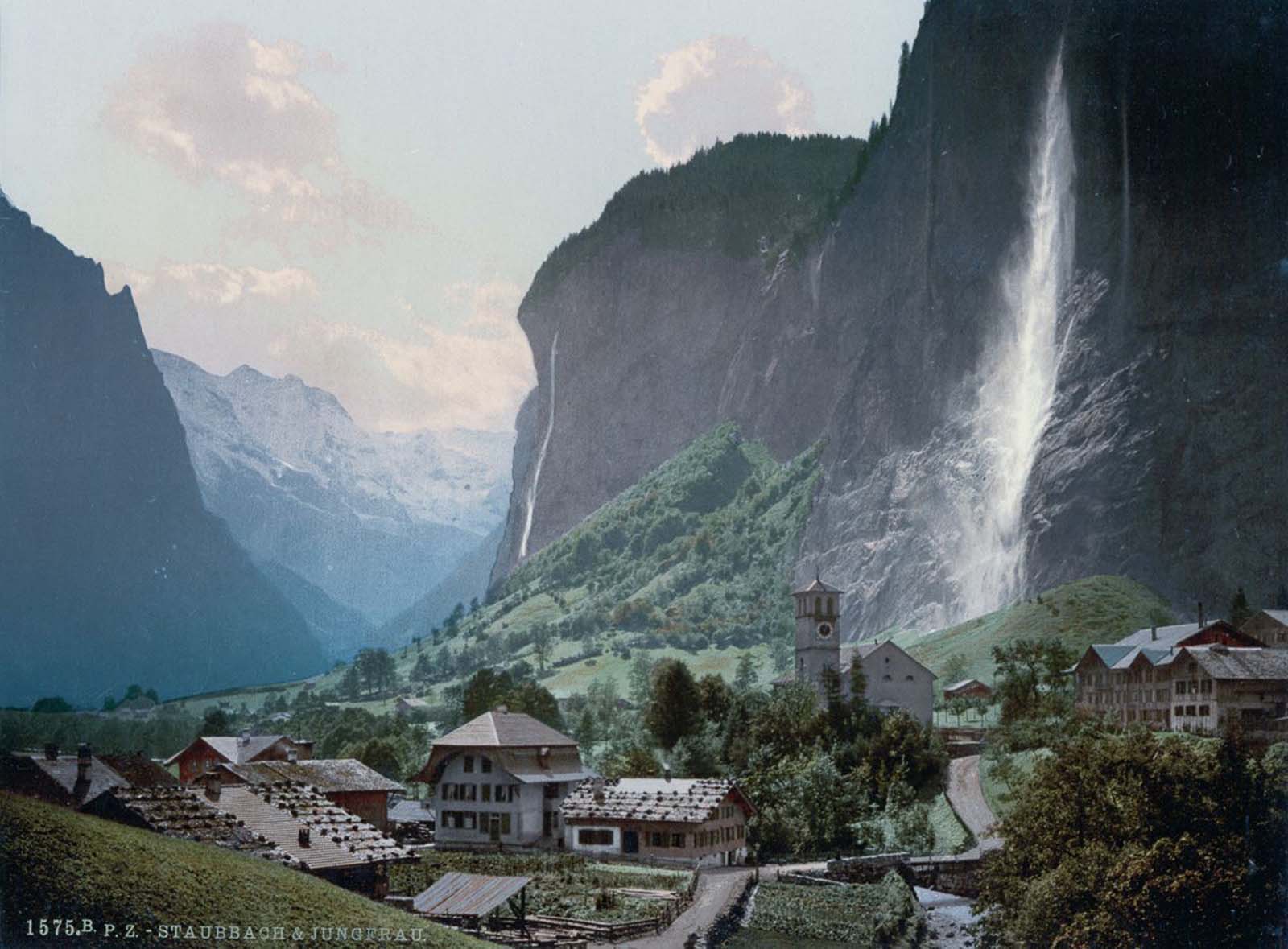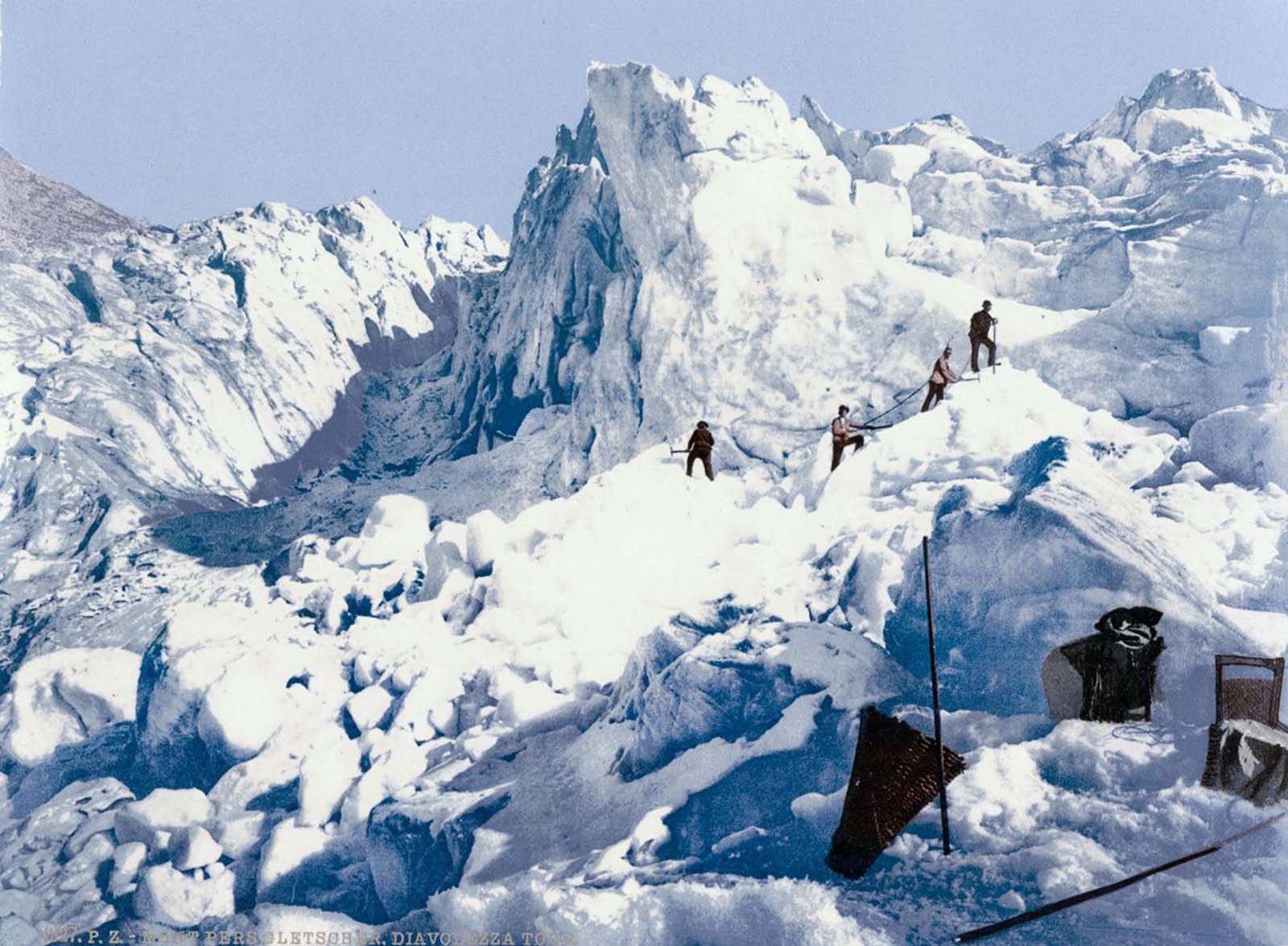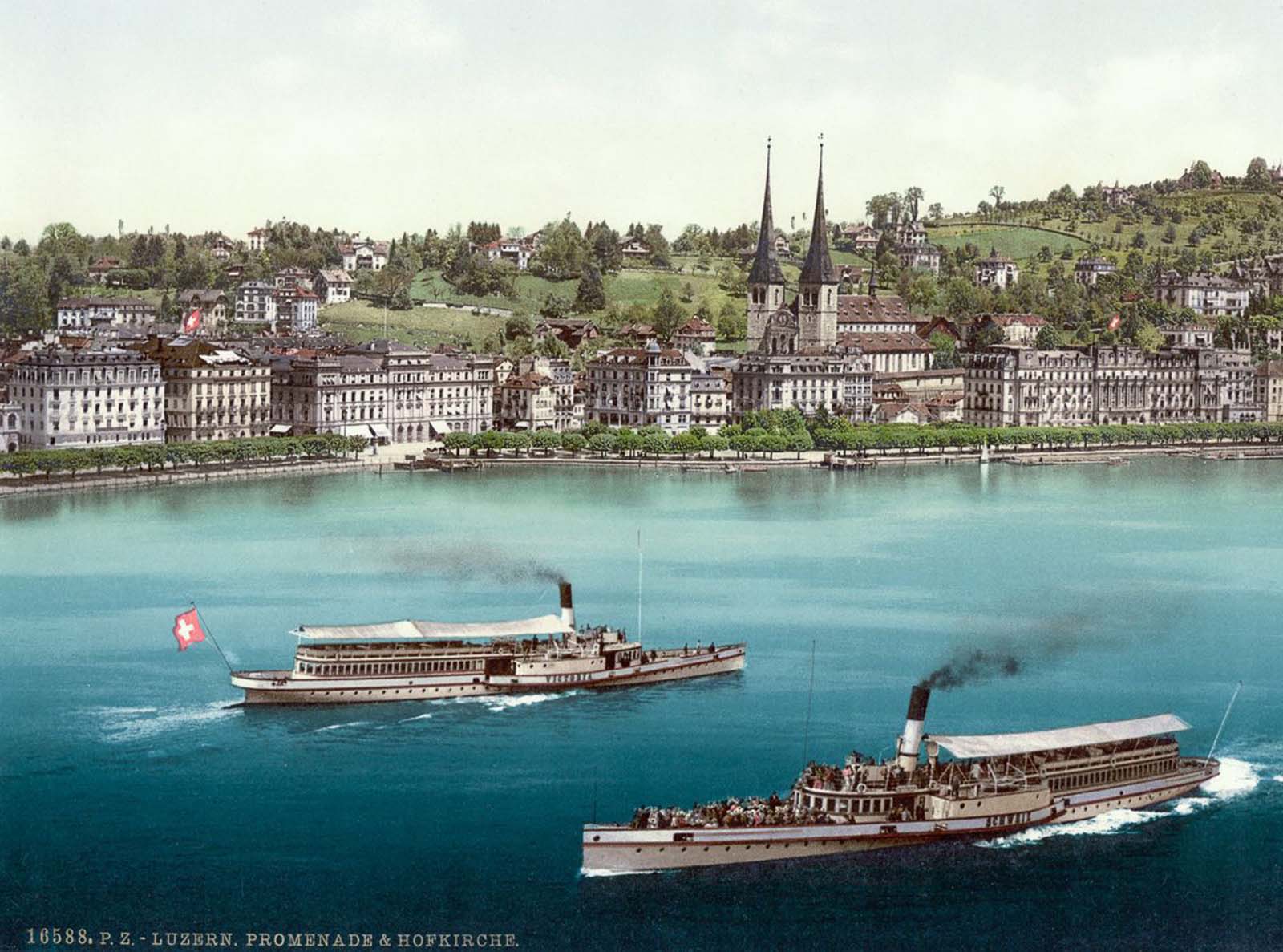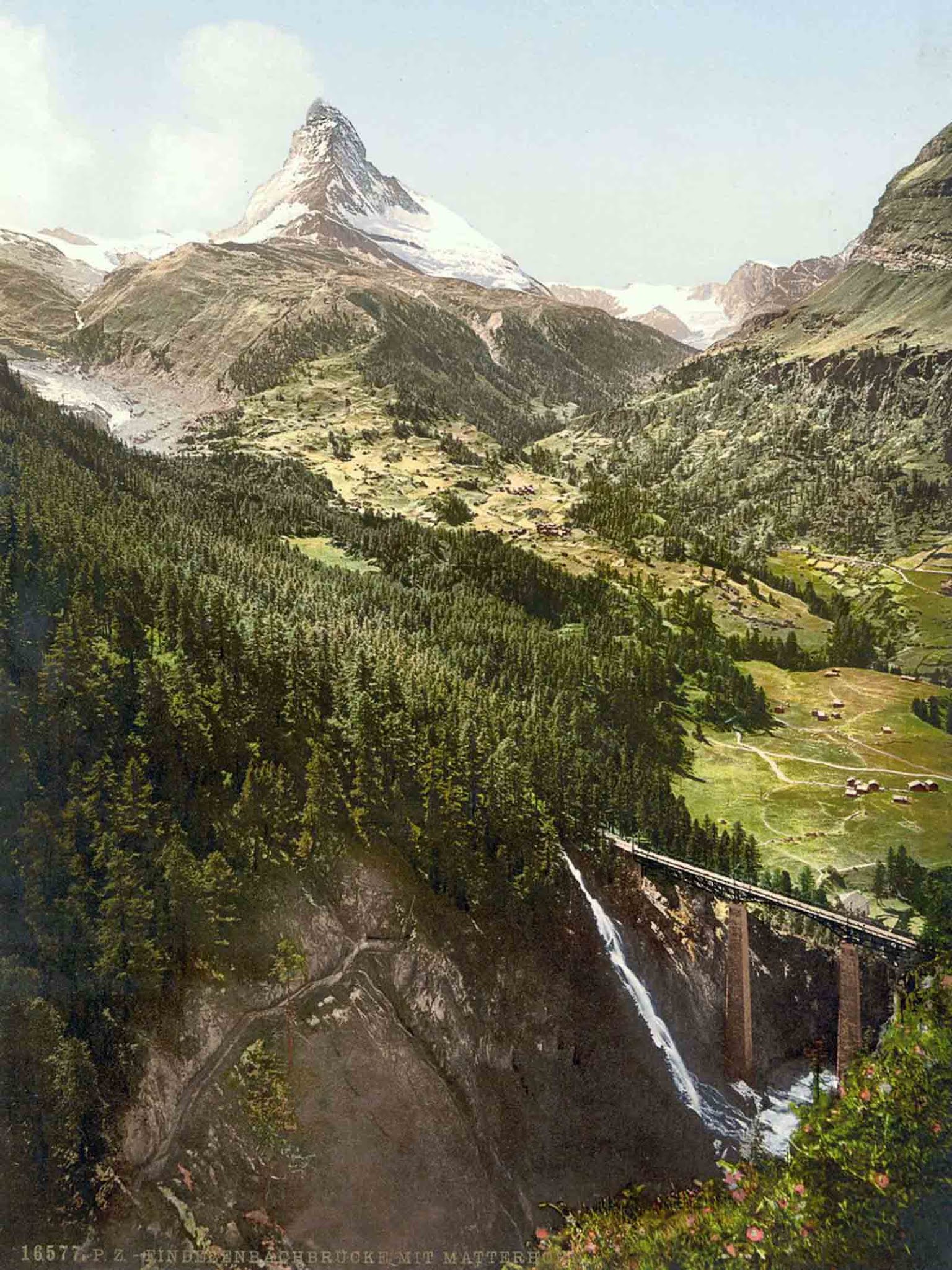While the prints may deceptively look like color photographs, but in fact, artificial color has in fact been added to black-and-white images. The process was invented in the 1880s by Hans Jakob Schmid, an employee of Swiss printing company Orell Gessner Füssli. It was highly time-consuming and required much attention to detail. The original tablet of lithographic limestone would be coated with a light-sensitive emulsion, placed under a photo negative, and exposed to sunlight for several hours. The softer portions would be removed with a solvent, leaving a fixed lithographic image on the stone. Then a technician would prepare additional lithographic layers for each tone to be used in the final color image. When the photochromic process was complete, the result was a vibrant color postcard. In the 20th century, Switzerland was a different place, and these impressive color photos show vast, unexplored mountains, women in headscarves holding pails for milk to tiny ramshackle wooden chalets, and locals carrying on their everyday life. The construction of the railways also had an impact on agriculture in the latter half of the 19th century: grain could be imported cheaply, which led farmers to increasingly convert to the more lucrative dairy farming. Many farm laborers had to find new work and moved either to industrial towns or emigrated. Between 1840 and 1900 real incomes in the industrial sector doubled, while the share of income needed to cover basic needs like food and rent fell dramatically. However, many workers paid a high price for this rise in disposable income: they worked extremely long hours, factories were noisy, smelly, and dangerous places, and living conditions and sanitation in many urban working-class neighborhoods were lamentable. Child labor was also commonplace. The development of the tourism industry went hand in hand with the growth of the railways, which made it easier for foreign visitors to travel through the country and take in its scenic landscapes and sights. By the end of the 19th century, some 350,000 foreign tourists – predominantly British – visited Switzerland each year. The development of summer and winter sports resorts was also thanks to these foreign guests. Although foreign trips remained beyond the means of most people, prosperous members of the middle class, like the nobles and the upper-middle class, could and did travel, at least within Switzerland. (Photo credit: Detroit Publishing Company / Library of Congress). Notify me of new posts by email.
Δ Subscribe
